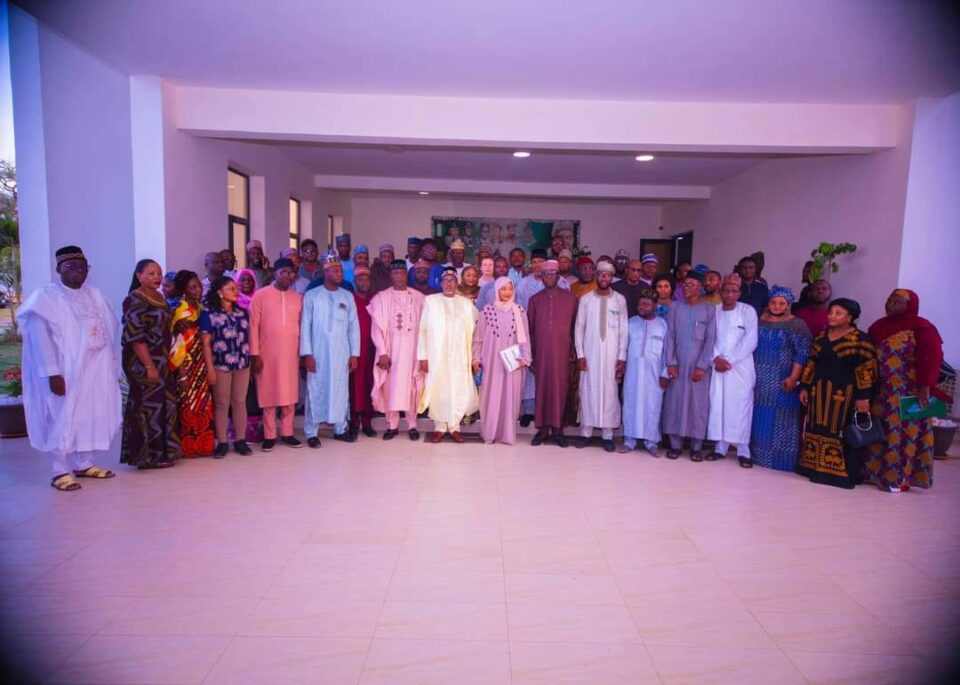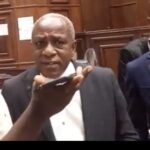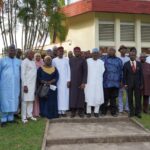Bauchi State governor, His Excellency Senator Bala Mohammed has reassured of the state’s commitment to actualize the development objective of the Agro-Climatic Resilience in Semi-Arid Landscapes (ACReSAL) Project because of the benefits it will bring to the people of the state.
The Governor said this when a joint World Bank and Federal Government of Nigeria (FGN) Implementation Support Mission on ACReSAL led by Dr. Joy I. Agene, Task Team leader of the ACReSAL project paid him a courtesy visit in Bauchi state government house.
He expressed his joy to be visited by such a wonderful project team that is adding so much value to lives.
He noted that the state is happy that the World Bank recognised her as a willing partner, and promised to study the project document, collaborate with the World Bank to better Bauchi state landscapes, enhance food production and security. He thanked the World Bank for coming and the continuous support to the states through projects and programs like ACReSAL, not only in terms of money but the human capital development aspect.
The Governor stressed that he would leverage on the ACReSAL project to actualize his vision because he has a technical team on ground drawn from ministries, departments and agencies (MDAs) to evaluate the state current position in terms of Agriculture, infrastructure, etc and said the project will help him to achieve his desired objective.
He told the team that Bauchi state is situated in Savanna region and is prone to flooding, erosion, desertification and other environmental hazards, and the state needs assistance in the areas of infrastructure, wetland management, restoration of degraded landscapes and resolve bottles that impedes agricultural initiatives.
The governor assured the mission team of his support and availability to the project team and promised to allocate a new building for the ACReSAL Project implementation. In terms of security, he stated that the state has a strong relationship with security infrastructure in the state coupled with local security measures, while noting that Bauch state is risk-free for the project activities.
Before her remarks, Dr. Joy I. Agene, the Task Team Leader of the ACReSAL Project and Senior Environmental Specialist World Bank together with Mr. Abdulhamid Umar, the National Project Coordinator of the ACReSAL Project presented the project implementation manual (PIM) to the governor. She noted that through the document and with the kind of commitment the project has seen in him, he will be able to support the project better than he has done.
She informed the governor that the team is in Bauchi as part of the activities of the project implementation support mission and a prerequisite by the project to be carried out every six monthly.
She told the Governor that the mission team is quite impressed with the success recorded so far in Bauchi state and have actually selected his state to carry out this mission. He reported that the project is receiving the first contribution to its result framework on landscapes restoration from Bauchi and thanked the governor on the strong team he has put in place to deliver on this. She also thanked the governor for his support to the Yankari game reserves park towards ecosystem restoration.
She stated that all these successes would not have been possible without the governor’s support and the project hopes to always engage with the governor and the state to better support communities that are suffering from flooding, erosion, desertification, etc. She stated the ACReSAL project management unit needs supports in the areas of accommodation and security.
Speaking further, Dr. Joy noted that outside these, there are other critical obligations expected from Bauchi state because the ACReSAL project will be addressing degraded land and also support institutions to be better prepared for responding to issues of climate change; specifically, she noted that through component A of the project, the project will be working on catchment management plan, erosion control, oasis restoration, drylands management, restoration of parts and improving their services. On component B of the project, the activities will focus on working with communities, building the resilience to ensure that they can respond to ACReSAL objectives and be able to manage the natural resources on their own even at the end of the project.
She noted that the component C of the project is on building and strengthening institutional, improving infrastructure and bringing in innovative technology that can help the project function efficiently.



